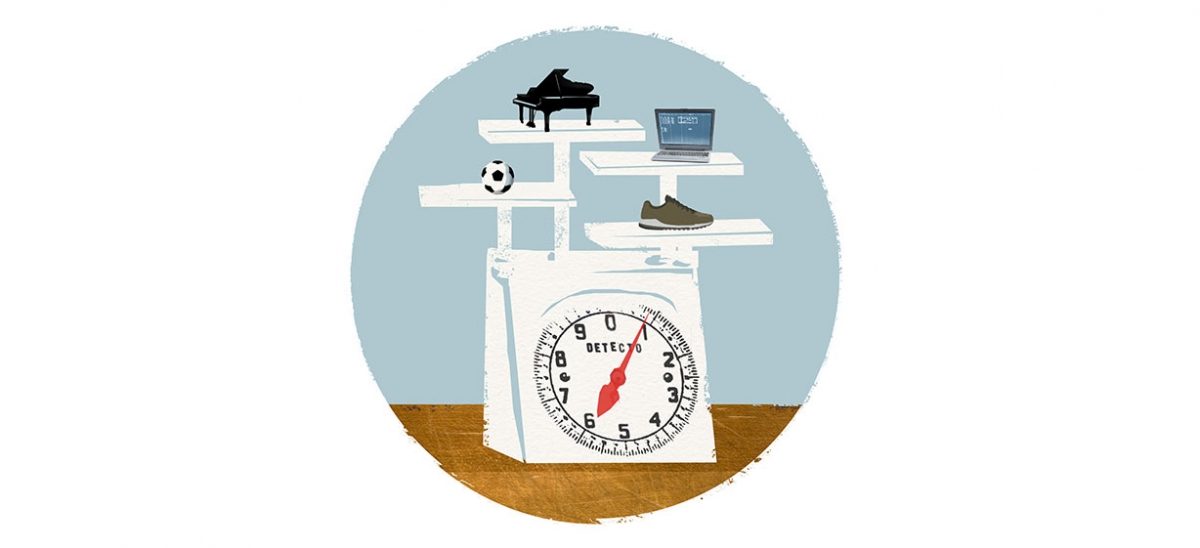The Equilibrium Illusion

Balance, n., a condition in which different elements are equal or in the correct proportions.
What an elusive state.
Just the constant weighing and evaluating required to attempt balance is exhausting. My mind races: I should be working on improving the bakery’s website… no, I should be at my kids’ soccer game… wait, I really need to get some exercise… maybe I could brainstorm about the website while jogging in a circle around my kids’ soccer game?
In the bakery we often use old-fashioned scales, the kind that require one to balance items on two separate ends to get to equilibrium. It’s not as easy as it looks, even with a weight of known quantity on one end and cocoa powder on the other. You have to put a little on, take a little off, nudge it to make sure it’s not stuck, and generally finesse it. Now picture our lives as an interconnected series of old scales. You put a little bit more on the end of one of them and all of sudden seven others start bobbing up and down outside of your control.
This image gives me nightmares because it illustrates two of my personal struggles: control and optimization. Folks like me say they like owning their own small business because they are in control, but anyone who has a small business knows this is a myth. You’re at the whim of your employees, your vendors, your landlords, your customers, your government. Not only are you at the mercy of these various parties, typically you find yourself with less leverage than one would have in corporate America. At the same time, you feel personally responsible for optimizing every aspect of your business. The website design isn’t as great as you’d like; that’s on you. The cash register software is inadequate; did you make a poor purchase decision? Your employee didn’t use the words you would have used to describe an offering; time to rethink your training.
The desire for control and optimization are personality traits that have served me and other business owners well. But as my life evolves from a scale with two ends (ah, the good old days when it was me on one end and school on the other) to the interconnected series that is much harder to balance, these traits, themselves, need to be balanced. Ironically, I find that pushing myself a little past the tipping point helps. If I only have two things to do, I obsess over those two things and get very anxious if they don’t go as planned. If I have 10, I don’t have time to obsess over any of them. And odds are one of them is going well even if another is going poorly. So, the less than ideal website is offset by a “best dessert” award. My kids’ lackluster piano lesson is compensated for with a creative Boys & Girls Club meeting.
It hasn’t been easy for me to learn to accept less than the ideal in any of the facets of my life, especially when the outside world sets high standards. We’re all supposed to be CEOs of multimillion dollar companies, parents of the year, community do-gooders, and pictures of physical and mental health. Don’t listen to “the voices.” Any mathematician will tell you: You can’t optimize every variable; you can only optimize the system, and the state of optimization you’re looking for is defined by the person who wrote the problem. So if I rewrite the problem to minimize the value of a full refrigerator and maximize the value of the computer networking issue I just solved, I am back in balance without lifting a finger—at least until dinner time.





